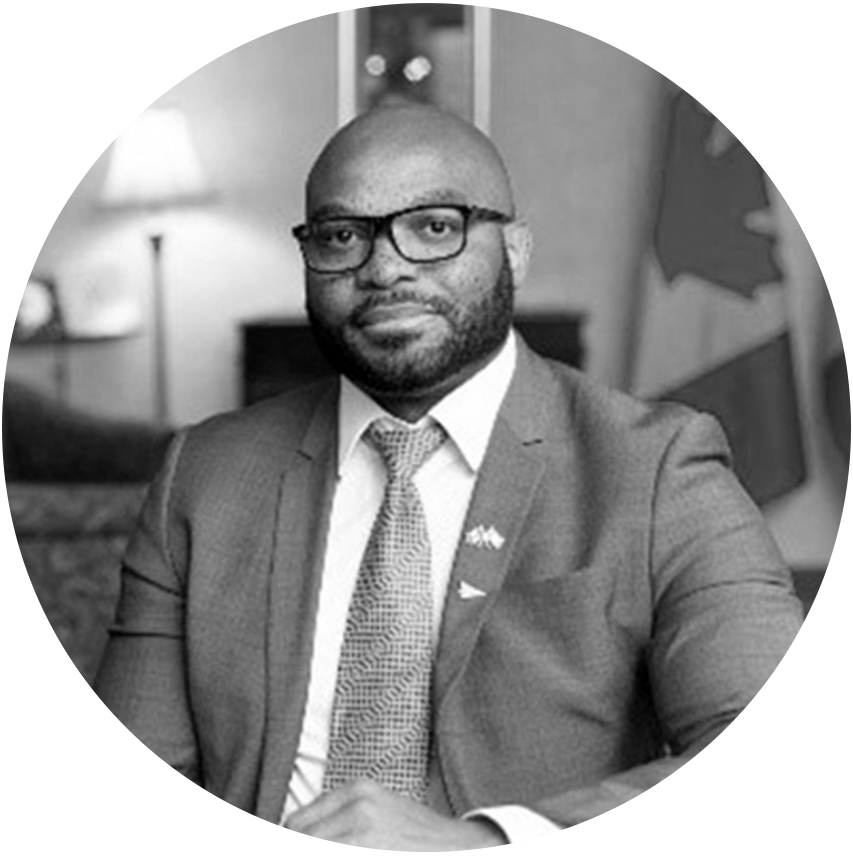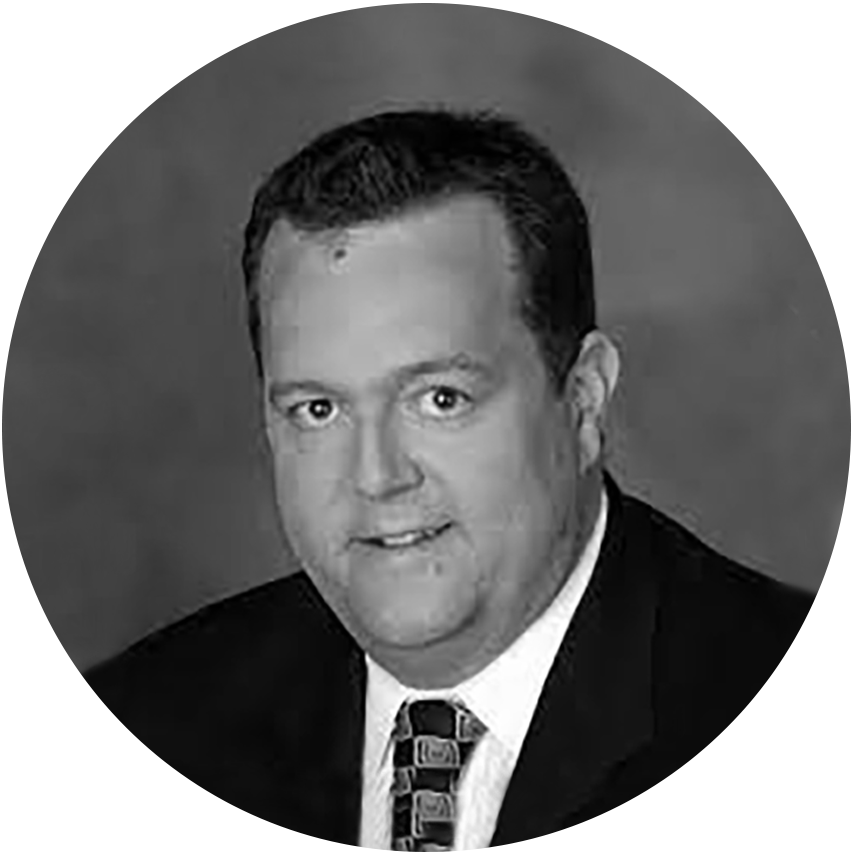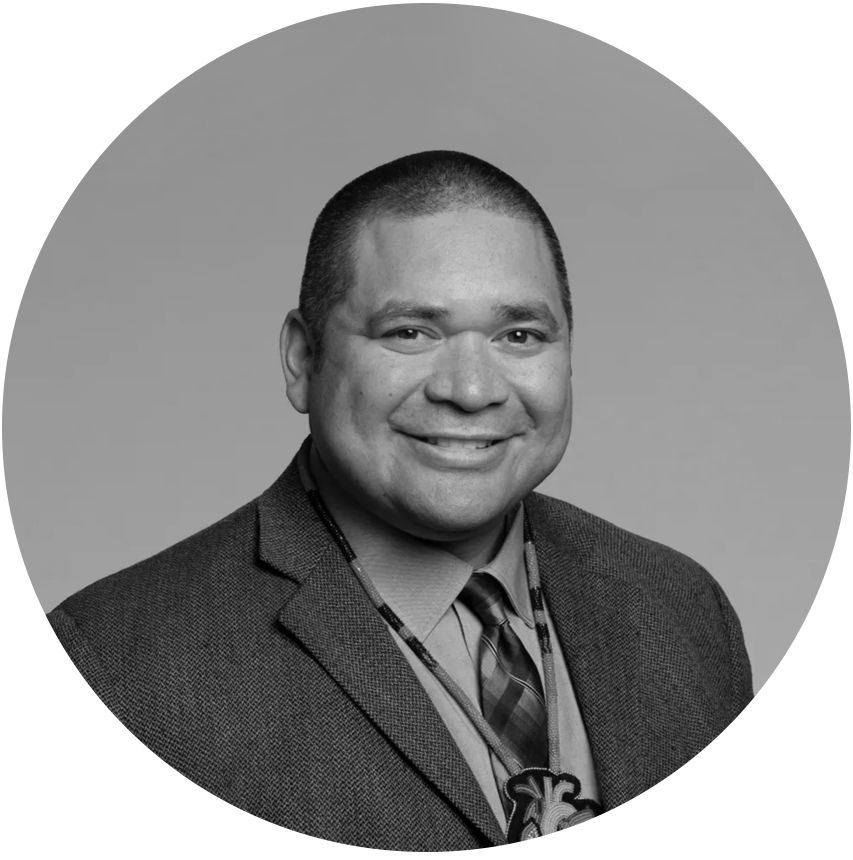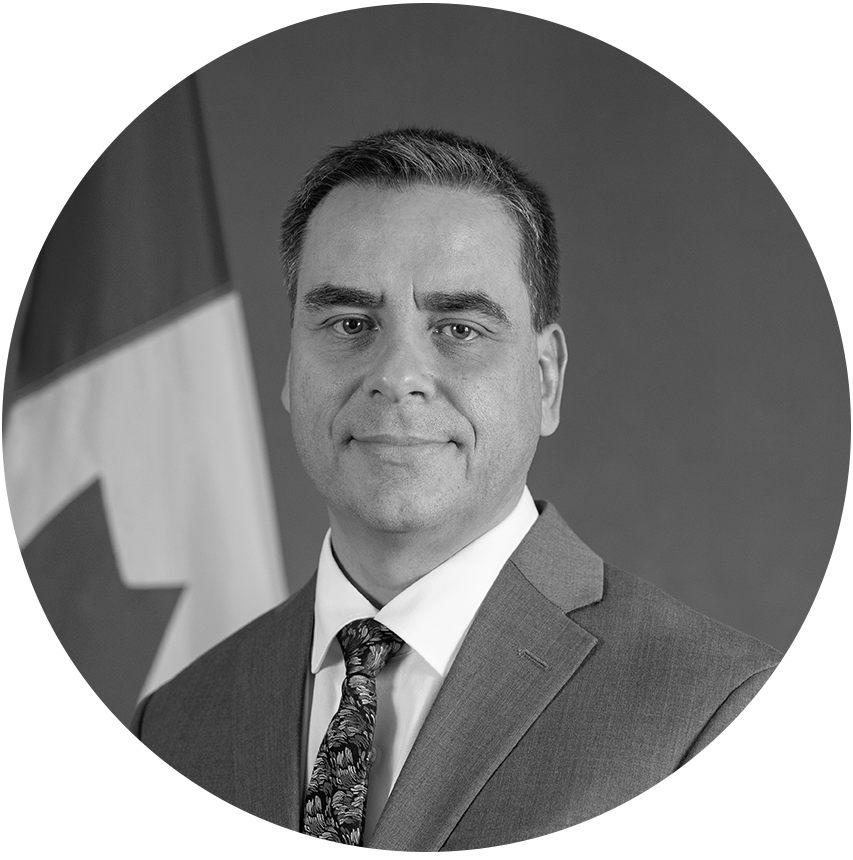Important: The GCConnex decommission will not affect GCCollab or GCWiki. Thank you and happy collaborating!
Difference between revisions of "Conférence de la Communauté des politiques 2023 : Répertoire des conférenciers"
| Line 48: | Line 48: | ||
|- | |- | ||
| colspan="2" | | | colspan="2" | | ||
| − | | | + | |''[https://wiki.gccollab.ca/index.php?title=Policy_Community_Conference_2023:_Agenda&redirect=no Retour au pogramme]'' |
|} | |} | ||
{| | {| | ||
| Line 59: | Line 59: | ||
|- | |- | ||
| colspan="2" | | | colspan="2" | | ||
| − | | colspan="2" | | + | | colspan="2" |''[https://wiki.gccollab.ca/index.php?title=Policy_Community_Conference_2023:_Agenda&redirect=no Retour au pogramme]'' |
|} | |} | ||
{| | {| | ||
| Line 69: | Line 69: | ||
|- | |- | ||
| colspan="2" | | | colspan="2" | | ||
| − | | colspan="2" | | + | | colspan="2" |''[https://wiki.gccollab.ca/index.php?title=Policy_Community_Conference_2023:_Agenda&redirect=no Retour au pogramme]'' |
|} | |} | ||
{| | {| | ||
| Line 86: | Line 86: | ||
|- | |- | ||
| colspan="2" | | | colspan="2" | | ||
| − | | colspan="2" | | + | | colspan="2" |''[https://wiki.gccollab.ca/index.php?title=Policy_Community_Conference_2023:_Agenda&redirect=no Retour au pogramme]'' |
|} | |} | ||
{| | {| | ||
| Line 102: | Line 102: | ||
|- | |- | ||
| colspan="2" | | | colspan="2" | | ||
| − | | colspan="2" | | + | | colspan="2" |''[https://wiki.gccollab.ca/index.php?title=Policy_Community_Conference_2023:_Agenda&redirect=no Retour au pogramme]'' |
|} | |} | ||
{| | {| | ||
| Line 113: | Line 113: | ||
| | | | ||
| | | | ||
| − | | colspan="2" | | + | | colspan="2" |''[https://wiki.gccollab.ca/index.php?title=Policy_Community_Conference_2023:_Agenda&redirect=no Retour au pogramme]'' |
|} | |} | ||
{| | {| | ||
| Line 123: | Line 123: | ||
|- | |- | ||
| colspan="2" | | | colspan="2" | | ||
| − | | colspan="2" | | + | | colspan="2" |''[https://wiki.gccollab.ca/index.php?title=Policy_Community_Conference_2023:_Agenda&redirect=no Retour au pogramme]'' |
|} | |} | ||
{| | {| | ||
| Line 136: | Line 136: | ||
|- | |- | ||
| colspan="2" | | | colspan="2" | | ||
| − | | colspan="2" | | + | | colspan="2" |''[https://wiki.gccollab.ca/index.php?title=Policy_Community_Conference_2023:_Agenda&redirect=no Retour au pogramme]'' |
|} | |} | ||
{| | {| | ||
| Line 149: | Line 149: | ||
|- | |- | ||
| colspan="2" | | | colspan="2" | | ||
| − | | colspan="2" | | + | | colspan="2" |''[https://wiki.gccollab.ca/index.php?title=Policy_Community_Conference_2023:_Agenda&redirect=no Retour au pogramme]'' |
|} | |} | ||
{| | {| | ||
| Line 162: | Line 162: | ||
|- | |- | ||
| colspan="2" | | | colspan="2" | | ||
| − | | colspan="2" | | + | | colspan="2" |''[https://wiki.gccollab.ca/index.php?title=Policy_Community_Conference_2023:_Agenda&redirect=no Retour au pogramme]'' |
|} | |} | ||
{| | {| | ||
| Line 172: | Line 172: | ||
|- | |- | ||
| colspan="2" | | | colspan="2" | | ||
| − | | colspan="2" | | + | | colspan="2" |''[https://wiki.gccollab.ca/index.php?title=Policy_Community_Conference_2023:_Agenda&redirect=no Retour au pogramme]'' |
|} | |} | ||
{| | {| | ||
| Line 190: | Line 190: | ||
|- | |- | ||
| colspan="2" | | | colspan="2" | | ||
| − | | colspan="2" | | + | | colspan="2" |''[https://wiki.gccollab.ca/index.php?title=Policy_Community_Conference_2023:_Agenda&redirect=no Retour au pogramme]'' |
|} | |} | ||
{| | {| | ||
| Line 203: | Line 203: | ||
|- | |- | ||
| colspan="2" | | | colspan="2" | | ||
| − | | colspan="2" | | + | | colspan="2" |''[https://wiki.gccollab.ca/index.php?title=Policy_Community_Conference_2023:_Agenda&redirect=no Retour au pogramme]'' |
|} | |} | ||
{| | {| | ||
| Line 216: | Line 216: | ||
|- | |- | ||
| colspan="2" | | | colspan="2" | | ||
| − | | colspan="2" |''[https://wiki.gccollab.ca/index.php?title=Policy_Community_Conference_2023:_Agenda&redirect=no | + | | colspan="2" |''[https://wiki.gccollab.ca/index.php?title=Policy_Community_Conference_2023:_Agenda&redirect=no Retour au pogramme]'' |
|} | |} | ||
{| | {| | ||
| Line 229: | Line 229: | ||
|- | |- | ||
| colspan="2" | | | colspan="2" | | ||
| − | | colspan="2" | | + | | colspan="2" |''[https://wiki.gccollab.ca/index.php?title=Policy_Community_Conference_2023:_Agenda&redirect=no Retour au pogramme]'' |
|} | |} | ||
{| | {| | ||
| Line 239: | Line 239: | ||
|- | |- | ||
| colspan="2" | | | colspan="2" | | ||
| − | | colspan="2" | | + | | colspan="2" |''[https://wiki.gccollab.ca/index.php?title=Policy_Community_Conference_2023:_Agenda&redirect=no Retour au pogramme]'' |
|} | |} | ||
{| | {| | ||
| Line 250: | Line 250: | ||
|- | |- | ||
| colspan="2" | | | colspan="2" | | ||
| − | | colspan="2" | | + | | colspan="2" |''[https://wiki.gccollab.ca/index.php?title=Policy_Community_Conference_2023:_Agenda&redirect=no Retour au pogramme]'' |
|} | |} | ||
{| | {| | ||
| Line 260: | Line 260: | ||
|- | |- | ||
| colspan="2" | | | colspan="2" | | ||
| − | | colspan="2" | | + | | colspan="2" |''[https://wiki.gccollab.ca/index.php?title=Policy_Community_Conference_2023:_Agenda&redirect=no Retour au pogramme]'' |
|} | |} | ||
{| | {| | ||
| Line 274: | Line 274: | ||
|- | |- | ||
| colspan="2" | | | colspan="2" | | ||
| − | | colspan="2" | | + | | colspan="2" |''[https://wiki.gccollab.ca/index.php?title=Policy_Community_Conference_2023:_Agenda&redirect=no Retour au pogramme]'' |
|} | |} | ||
{| | {| | ||
| Line 287: | Line 287: | ||
|- | |- | ||
| colspan="2" | | | colspan="2" | | ||
| − | | colspan="2" | | + | | colspan="2" |''[https://wiki.gccollab.ca/index.php?title=Policy_Community_Conference_2023:_Agenda&redirect=no Retour au pogramme]'' |
|} | |} | ||
{| | {| | ||
| Line 300: | Line 300: | ||
|- | |- | ||
| colspan="2" | | | colspan="2" | | ||
| − | | colspan="2" | | + | | colspan="2" |''[https://wiki.gccollab.ca/index.php?title=Policy_Community_Conference_2023:_Agenda&redirect=no Retour au pogramme]'' |
|} | |} | ||
Revision as of 13:27, 26 October 2023
[English]
John Hannaford | |||
|---|---|---|---|
| Lorem ipsum dolor sit amet, consectetur adipiscing elit. Suspendisse ultricies rhoncus justo ac dictum. Donec accumsan nunc odio, vulputate rhoncus nunc maximus vel. Vestibulum nulla turpis, posuere ut posuere non, consectetur ac turpis. Nunc vitae viverra lacus. Proin eu fermentum nulla. Quisque id pulvinar quam. Vestibulum viverra lectus vitae quam tristique, ac sagittis metus fermentum. Maecenas fermentum metus sed nulla pulvinar, sed sodales velit porta. Nunc ornare odio in mauris tincidunt dictum. Curabitur vulputate nulla non tortor pretium blandit. Morbi ac fermentum eros, ut sollicitudin libero. Nullam lacinia quam libero, in rhoncus erat tempus a. Donec semper molestie metus at tempus. In facilisis velit risus, at viverra tortor fermentum nec. Maecenas eu ultricies risus.
Quisque consectetur tristique libero, vel viverra justo tempor sed. Pellentesque dignissim egestas dapibus. Cras non metus egestas, mattis lacus vitae, lobortis nisi. Donec congue egestas nisl, quis blandit turpis eleifend vel. Sed feugiat convallis dui, ac. | |||
| Retour au pogramme | |||
Serge Bijimine | |||
|---|---|---|---|
| Serge Bijimine is Assistant Deputy Minister of Policy at Transport Canada and has taken on a critical leadership role in the development of policy, economic and environmental advice. In this capacity, Serge is responsible for developing and managing the transportation sector policy framework as well as oversight of the department’s portfolio of crown corporations and international and intergovernmental relations. Mr. Bijimine is also responsible for managing relationships with stakeholders in the air, marine and surface transportation sector. Serge has a strong track record of delivering results, driving innovation and problem-solving.
Before this, Serge was Associate Secretary General for a brief period and then Secretary General at the National Research Council (NRC). Previously, Serge held various senior executive positions, including at Environment and Climate Change Canada, where he oversaw a number of grants and contributions programs, mainly directed at incentivizing private sector companies to help address climate change. After joining the federal public service in 2005, Serge became an executive at the Treasury Board Secretariat and worked in the Economic as well as International Affairs, Security and Justice sectors.
He holds a Bachelor in Economics and Social Sciences from the University of Ottawa and a Master’s in Project Management from the Université du Québec en Outaouais. | |||
| Retour au pogramme | |||
Pablo Sobrino | |||
|---|---|---|---|
| Pablo Sobrino retired from the Public Service of Canada in 2015 after 38 years of service. He began his public service career with the Canadian Coast Guard as a navigation officer and hovercraft pilot, working his way through a number of positions in regions and headquarters to eventually become Director of Marine Programs.
In 2000, Pablo changed career paths. Executive positions at Fisheries and Oceans Canada and Canadian Heritage helped him build expertise in policy, finance and leadership. After five years as an Assistant Deputy Minister, he spent his last year in the public service as an advisor and lecturer at the Canada School of Public Service. Since his retirement, Pablo has continued to contribute his experience and insight to the public service as an occasional consultant. | |||
| Retour au pogramme | |||
Jesse Wente | ||
|---|---|---|
| Jesse Wente is a husband and father, as well as an award-winning writer and speaker. Born and raised in Toronto, his family comes from Chicago and Genaabaajing Anishinaabek and he is an off-reserve member of the Serpent River First Nation. Jesse is best known for more than two decades spent as a columnist for CBC Radio’s Metro Morning. Jesse spent a decade with the Toronto International Film Festival as a curator, including leading the film programming at the Tiff Bell Lightbox. In 2018, Jesse was named the founding director of the Indigenous Screen Office and in summer 2020 he was appointed Chair of the Canada Council for the Arts. Jesse received the Arbor Award from the University of Toronto in 2021 for his volunteer contributions and was recently appointed a Senior Fellow of Massey College. His first book “Unreconciled: Family, Truth and Indigenous Resistance” is a national bestseller and was picked as one of best books of 2021 by Chapters-Indigo, Apple Books and The Globe and Mail. Last year, Jesse won the Kobo Emerging Writers Prize in Non-Fiction and most recently, he has been named the Communicator of the Year for 2022 by the International Association of Business Communicators. | ||
| Retour au pogramme | ||
Bryce Conrad | |||
|---|---|---|---|
| Bryce Conrad has served as President and Chief Executive Officer of Hydro Ottawa since 2011. Under his leadership, Hydro Ottawa has become one of the most profitable, innovative, and customer-oriented utilities in Canada, regularly winning awards and accolades for customer service and innovation. Since 2012, Hydro Ottawa has tripled its renewable generation, making it the largest municipally owned generator of clean, green energy in Ontario.
Prior to joining Hydro Ottawa, Mr. Conrad served as Assistant Deputy Minister - Program Operations at Infrastructure Canada, where he managed the implementation of the $4 billion Infrastructure Stimulus Fund, overseeing the selection and management of 4,000 projects that created more than $10 billion in economic activity. He was also responsible for the oversight and administration of the Building Canada Fund, the Green Infrastructure Fund and the Gas Tax agreements with provinces and municipalities. | |||
| Retour au pogramme | |||
Deborah Richardson | |||
|---|---|---|---|
| Deborah Richardson is the Deputy Minister at Treasury Board Secretariat and Secretary of Treasury Board and Management Board of Cabinet at Ontario Treasury Board Secretariat. She is a proud Mi'gmaq woman and a member of the Pabineau First Nation. She has served at the highest levels of public service in Canada, being the first Indigenous woman to serve as a Deputy Minister within the Ontario public service. A seasoned executive and a business-savvy lawyer with almost three decades of private, not-for-profit, and public experience, Ms. Richardson is known as a change-maker and visionary leader. A forward-thinking, fiscally responsible leader, Deborah is known for her caring, collaborative style, and ability to nurture relationships. This has contributed to her reputation as an authentic leader and humanitarian. | |||
| Retour au pogramme | |||
Dr. Nadia Ferrera | |||
|---|---|---|---|
| Dr. Nadia Ferrara is a dedicated public servant and a passionate humanitarian. She is currently the Ombudsperson at Indigenous Services Canada. Prior to this, she was Senior Director at Parks Canada where she established the Values, Ethics, Diversity and Inclusion Directorate. Nadia gained ombuds experience when she was the Executive Director at the Office of the Federal Ombudsman for Victims of Crime, Department of Justice. Nadia also worked at Women and Gender Equality Canada, and before that, at Indigenous and Northern Affairs Canada for over a decade, where she worked closely with First Nations and Inuit Health Branch and developed policies and frameworks in collaboration with Indigenous partners.
Nadia remains on Faculty at McGill University as Adjunct Professor in the Department of Anthropology where she supervises graduate and undergraduate students in her spare time.
Before entering the Government of Canada in 2003, Nadia worked as an art therapist for 16 years, specializing in cross-cultural psychotherapy with Indigenous peoples in Quebec and Ontario, Canada. Her education includes a Master of Arts in Art Therapy, a Master of Science in Transcultural Psychiatry, and a Doctorate in Medical Anthropology. | |||
| Retour au pogramme | |||
Dr. Alika Lafontaine | |||
|---|---|---|---|
| Dr. Alika Lafontaine, named Maclean’s top Health Care Innovator of 2023, has been at the epicenter of healthcare system change for almost two decades. He is the first Indigenous physician and the youngest doctor to lead the Canadian Medical Association (CMA) in its 156-year history, and the first Indigenous physician to be listed on The Medical Post’s 50 Most Powerful Doctors.
| |||
| Retour au pogramme | |||
Vanessa Vermette | |||
|---|---|---|---|
| Vanessa Vermette is currently the Vice-President of Innovation and Skills Development at the Canada School of Public Service. She has also served as its Director General of Communications and Engagement, and has served in other executive positions at the School and at the Treasury Board of Canada Secretariat. In addition, she has worked at the Public Health Agency of Canada, Transport Canada, and Infrastructure Canada in both policy and communications and has over 20 years of experience in the public service. In her current role, Vanessa actively supports the Government of Canada’s digital and data mandate and its digital and data communities, and leads efforts to advance digital government and public sector innovation through learning. She is also the first Chair of the Digital Governance Standards Institute, Canada's only accredited standards development body focused exclusively on setting and managing digital technology governance standards. Vanessa holds a Master’s of Public Health from Queen’s University in Kingston, Ontario and is passionate about equipping public servants with the skills and tools they need to succeed in meeting the needs of Canadians. | |||
| Retour au pogramme | |||
Richard D. Sharpe | |||
|---|---|---|---|
| Richard D. Sharpe has been a human rights advocate for 30 years, both at the community and institutional levels. Until the beginning of this year, he worked within the Canadian Federal Public Service where he held several national positions representing employees as both a union representative and as a leader in employee-led organizations. He held the position of Director of Equity, Anti-racism, Diversity and Inclusion at the Department of Justice Canada, where he spearheaded department and enterprise-wide initiatives to address long-standing discriminatory practices in the federal government. He is currently the Director of the Black Equity Branch, Treasury Board Secretariat, in the Ontario Public Service. | |||
| Retour au pogramme | |||
Terry Irwin | |||
|---|---|---|---|
| Terry Irwin is a Professor in the School of Design and Director of the Transition Design Institute at Carnegie Mellon University, Pittsburgh. From 2009 - 2019, she served as Head of School, leading a multi-year process to place ‘design for society and the environment’ at the heart of all programs and curricula. Along with Gideon Kossoff and Cameron Tonkinwise, she is one of the co-originators of Transition Design, a transdisciplinary approach for addressing the many complex, wicked problems confronting 21st century societies.
| |||
| Retour au pogramme | |||
Lydia Laflamme | |||
|---|---|---|---|
| Lydia Laflamme, one of two winners of the 10th National Student Paper Competition, is a master's student in political science at Université Laval in Québec. She is a member of the Research Chair on Democracy and Parliamentary Institutions, the Université Laval Research Group in Politics and Cognition, and the Leadership Chair in the Teaching of Digital Social Sciences. Her main areas of research are political psychology and electoral politics in Quebec and the rest of Canada. More specifically, she studies intergroup conflict, the impact of identity on political attitudes, and the connections between voter well-being and behaviour.
| |||
| Retour au pogramme | |||
David Jones | |||
|---|---|---|---|
| David Jones, one of two winners of the 10th National Student Paper Competition, is a policy analyst and advisor, specializing in economics, healthcare and public policy. Currently, David is midway through the Master of Public Policy degree at the Munk School of Global Affairs & Public Policy. He also studied Economics at the University of Cambridge. David is passionate about providing high-quality research, analysis and advice that both supports efficient policymaking and improves the welfare of society.
| |||
| Retour au pogramme | |||
Jutta Treviranus | |||
|---|---|---|---|
| Jutta Treviranus is the Director of the Inclusive Design Research Centre (IDRC) and professor in the faculty of Design at OCAD University in Toronto (http://idrc.ocadu.ca ). Jutta established the IDRC in 1993 as the nexus of a growing global community that proactively works to ensure that our digitally transformed and globally connected society is designed inclusively. Dr. Treviranus also founded an innovative graduate program in inclusive design at OCAD University. Jutta is credited with developing an inclusive design methodology that has been adopted by large enterprise companies such as Microsoft, as well as public sector organizations internationally. In 2022 Jutta was recognized for her work in AI by Women in AI with the AI for Good - DEI AI Leader of the Year award. | |||
| Retour au pogramme | |||
Roda Muse | |||
|---|---|---|---|
| Roda Muse is the Deputy Minister of Francophone Affairs for the Government of Ontario. Prior to this appointment, she was the Secretary-General of the Canadian Commission for the United Nations Educational, Scientific and Cultural Organization (UNESCO).
Roda has served as a senior public servant for over 20 years. She was also the first BIPOC elected as a school board trustee in the Francophone system in Ottawa, among other board of director roles for various organizations. Roda also served as a Board Member at the Montfort Hospital, ACEPO and Consortium of Centre Jules-Léger. Some of her awards and recognitions include being:
Roda holds a Master of Public Administration, a Master of Education, and a Bachelor of Literature. | |||
| Retour au pogramme | |||
Darren Swanson | |||
|---|---|---|---|
| Darren Swanson is Director of the Winnipeg-based Novel Futures Corporation and a Senior Associate of the International Institute for Sustainable Development (IISD). He has over two decades of experience assisting United Nations agencies, governments, businesses and community organizations around the world in the arenas of strategic foresight, risk assessment and resilience, and sustainable development. In 2009, he co-authored the book Creating Adaptive Policies: A Guide for Policy-making in an Uncertain World. Mr. Swanson will unpack the seven principles of adaptive policies and provide an overview of the Adaptive Design and Assessment Policy Tool (ADAPTool) – a practical policy analysis tool developed to help policy practitioners translate the principles into tangible recommendations – along with lessons learned from applications in Canada.
| |||
| Retour au pogramme | |||
Gail Mitchell | |||
|---|---|---|---|
| Gail Mitchell joined the public service in 1997 and has worked in the areas of program policy and delivery, strategic policy and corporate services across several departments. Gail recently joined Women and Gender Equality as the Assistant Deputy Minister of Departmental Programs and Operations.
Previously, Gail Mitchell was the Assistant Deputy Minister of the Strategic Policy and Partnerships (SPP) sector at Indigenous Services Canada from March 2019. Prior to this Gail was Director General of Intergovernmental Relations at Employment and Social Development Canada (ESDC). In that role, Gail was responsible for providing strategic advice on key social policy issues, and she represented Canada at various international meetings, including the G7, the G20, the OECD and the United Nations, on issues related to labour and employment. Gail also co-chaired the Canada–Mexico Partnership Labour Mobility Working Group, and the European Union and Canada Bilateral Dialogue on Employment, Social Affairs and Decent Work. Gail led the engagement on the domestic and international implementation of the United Nations 2030 Agenda for Sustainable Development. | |||
| Retour au pogramme | |||
Heather Sheehy | |||
|---|---|---|---|
| Heather Sheehy was appointed Assistant Secretary of the Government Operations Sector in the Treasury Board Secretariat in November 2020. In this role she supports Treasury Board Ministers on numerous issues of importance in advancing the government's agenda – including real property, procurement, and policies and programs which regulate how the federal public service operates.
| |||
| Retour au pogramme | |||
Eric Bélair | |||
|---|---|---|---|
| Eric Bélair is Assistant Secretary to the Cabinet at the Privy Council Office of Canada. He is responsible for the Priorities and Planning Secretariat, as well as the Results and Delivery Unit. In his role, he supports the advancement of the government’s overall policy agenda. Eric previously occupied senior executive positions at Health Canada and Natural Resources Canada, where he led policy priorities in the areas of pharmaceuticals, mental health and energy. | |||
| Retour au pogramme | |||
Samuel Millar | |||
|---|---|---|---|
| Lorem ipsum dolor sit amet, consectetur adipiscing elit. Suspendisse ultricies rhoncus justo ac dictum. Donec accumsan nunc odio, vulputate rhoncus nunc maximus vel. Vestibulum nulla turpis, posuere ut posuere non, consectetur ac turpis. Nunc vitae viverra lacus. Proin eu fermentum nulla. Quisque id pulvinar quam. Vestibulum viverra lectus vitae quam tristique, ac sagittis metus fermentum. Maecenas fermentum metus sed nulla pulvinar, sed sodales velit porta. Nunc ornare odio in mauris tincidunt dictum. Curabitur vulputate nulla non tortor pretium blandit. Morbi ac fermentum eros, ut sollicitudin libero. Nullam lacinia quam libero, in rhoncus erat tempus a. Donec semper molestie metus at tempus. In facilisis velit risus, at viverra tortor fermentum nec. Maecenas eu ultricies risus.
Quisque consectetur tristique libero, vel viverra justo tempor sed. Pellentesque dignissim egestas dapibus. Cras non metus egestas, mattis lacus vitae, lobortis nisi. Donec congue egestas nisl, quis blandit turpis eleifend vel. Sed feugiat convallis dui, ac. | |||
| Retour au pogramme | |||
Mark Schaan | |||
|---|---|---|---|
| Mark Schaan is the Senior Assistant Deputy Minister for Strategy and Innovation Policy at the Department of Innovation, Science and Economic Development (ISED). In this role he is responsible for advancing the government's microeconomic policy agenda; supporting the development of the department's horizontal policy and strategic priorities, including by ensuring robust marketplace frameworks telecommunications policy, and the deepening of external relations; and, providing support to regional economic development. Prior to becoming an ADM, Mark was the Director General, Marketplace Framework Policy Branch at ISED. In this role, Mark advised on the policy, legislative, and stakeholder issues relating to laws of general economic application, including privacy and data protection, patents, trademarks, copyright, competitions and insolvency, all in support of an innovative and high-functioning Canadian economy. | |||
| Retour au pogramme | |||
Catherine Charbonneau | |||
|---|---|---|---|
| Catherine Charbonneau is a designer, organizational development specialist, and experienced facilitator leading multi-year projects in multiorganizational contexts. She is driven to bring new insights into the changing nature of policymaking and complex problem discovery. Catherine understands the relationship between experimentation, innovation and policymaking in a government context. She understands the paradox to work differently in a controlled environment, to plan strategically while staying prospectively open to stewarding emergent opportunities and working in transforming multi stakeholder systems.
She leads teams and initiatives with a high degree of comfort, resilience and clarity through transition and uncertainty. She has carried the Policy Community Initiative through two departmental transfers between June 2021 and December 2022, reorienting the organization with digital transformation to accelerate policy community development and better harvest community analytics.
| |||
| Retour au pogramme | |||
Tamara Girard | |||
|---|---|---|---|
| Tamara Girard is a policy innovation practitioner who has over twenty years professional experience across the public, private and non-profit sectors, working in policy positions with the Government of Canada; as Director of the London Arts Council; as a freelance writer; and in the investment industry. Throughout her career she also returned to academia, receiving an MA, and working toward a PhD.
She is a problem solver who loves to delve deeply into the complex issues our world faces today, engage in research and critical thinking, and find new ways of moving forward. She is interested in using foresight, design thinking and creative problem-solving techniques to look at these issues in new ways and develop innovative policy approaches and solutions. Her experience in and knowledge of the public, private and non-profit sectors and how they function, combined with her academic background, provide her with a unique perspective and understanding of key issues. In today’s increasingly interconnected world, and with the complex issues we are facing, this multidisciplinary experience and expertise is a great asset. Tamara brings this expertise to PCPO’s Community Research and Outreach Team, managing a unit responsible for participatory research projects and facilitated workshops aimed to provide community insights to inform learning events and future projects, and design practical solutions tailored to policy practitioners' needs, expectations, perspectives and behaviors. | |||
| Retour au pogramme | |||
Daniel Villate | |||
|---|---|---|---|
| Daniel Villate’s keen interest is to elevate the capacity for design alongside traditional policy competencies in the Government of Canada. He believes research is the foundation of any great design. Excited to put his inquisitive and collaborative nature to work for PCPO, Daniel is looking to better understand and highlight the experiences and behaviors of policy practitioners. He will propose content generation experiences to gather intel, analyze and curate evidence on complex issues. His projects will generate community insights and model novel approaches in experimentation that translate abstract and fuzzy ideas into tangible and engaging models - learning through doing.
| |||
| Retour au pogramme | |||
























